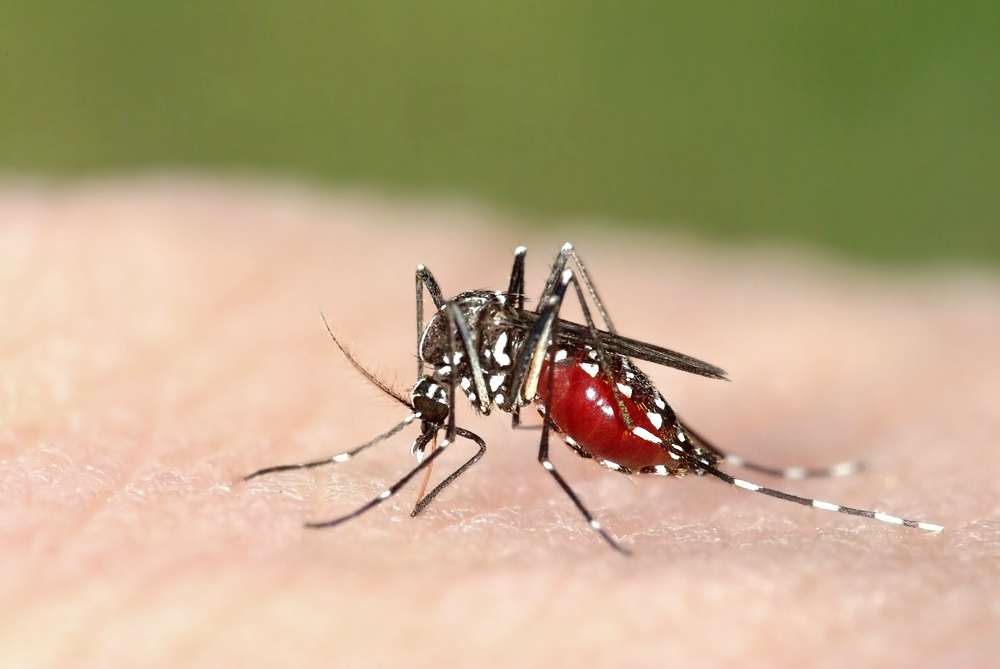 An infection with the Chikungunya virus presents several clinical similarities with rheumatoid arthritis that may lead to inaccurate diagnoses. A new study entitled “Chikungunya viral arthritis in the United States: A mimic of seronegative,” was published in Arthritis and Rheumatology by Jonathan J. Miner and Han-Xian Aw-Yeang, first co-authors, part of Dr. Wayne M. Yokoyama’s group from Washington University School of Medicine in St. Louis, MO.
An infection with the Chikungunya virus presents several clinical similarities with rheumatoid arthritis that may lead to inaccurate diagnoses. A new study entitled “Chikungunya viral arthritis in the United States: A mimic of seronegative,” was published in Arthritis and Rheumatology by Jonathan J. Miner and Han-Xian Aw-Yeang, first co-authors, part of Dr. Wayne M. Yokoyama’s group from Washington University School of Medicine in St. Louis, MO.
The Chikungunya Virus (CHIKV) is an arthritogenic alphavirus transmitted by infected mosquitoes, identified 60 years ago in eastern Africa. It has spread to various parts of the world, and very recently to the Caribbean and the United States. In 2014, in the United States, over 2,000 individuals were infected with the virus after traveling outside of the U.S., mainly to the Caribbean. In the same year, the Centers for Disease Control and Prevention reported 11 cases of Chikungunya infection in individuals from Florida that have not traveled abroad, suggesting the existence of infected mosquitoes in that state. The most common symptoms are fever and a rash that lasts for 7 to 10 days, and severe joint pain in the hands, feet, knees, neck and elbows — typical arthritis symptoms, which may last for 12 to 15 months in 60% of patients or, even in some cases, persist for 3 years. The patients infected with CHIKV develop inflammatory arthritis, but the immunologic features of CHIKV arthritis in humans when compared to rheumatoid arthritis (RA) have been poorly studied.
In this study, the research team analyzed 10 American travelers that were infected in Haiti in June 2014. The patients were evaluated through history, physical examination, and laboratory studies, and were all found positive for anti-CHIKV IgG. The authors used cytometry by time of flight (CyTOF) to analyze peripheral blood mononuclear cells in CHIKV-infected patients, healthy controls, and individuals with untreated, active RA. They found that 8 out of 10 of the patients infected with CHIKV developed persistent symmetric polyarthritis according to the 2010 ACR/EULAR criteria for (seronegative) RA. In addition, the patients with RA and CHIKV presented higher percentages of activated and effector CD4+ and CD8+ T cells when compared to healthy controls.
The researchers concluded that besides developing very similar clinical features, patients with CHIKV infection and RA showed also comparable peripheral T cell phenotypes. These findings reinforce the need for rheumatologists to include CHIKV infection when analyzing patients with new, symmetric polyarthritis.
“For now, good travel histories of patients are among the best diagnostic tools for physicians,” said Dr. Wayne Yokoyama, the Sam and Audrey Loew Levin Professor of Medicine, in a press release. “In addition, the disease typically starts with high fever and abrupt onset of severe pain in the joints, which are not usually seen with rheumatoid arthritis,” added Dr. Yokoyama.
Dr. Yokoyama highlighted that a better understanding of the Chikungunya virus infection could help in elucidating the pathogenesis of rheumatoid arthritis that affects one in every 100 individuals in the world. The research team has established a Chikungunya registry at chikv.dom.wustl.edu to build a database of cases for studying the virus in more detail. The worldwide spread of the Chickungunya virus suggests that the disease will probably be a diagnostic challenge in the near future.
This work was supported by The Foundation for Barnes-Jewish Hospital and the Howard Hughes Medical Institute.


